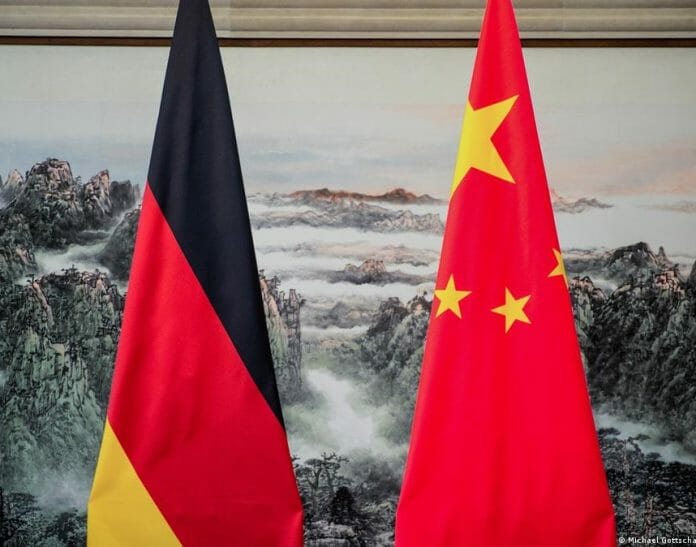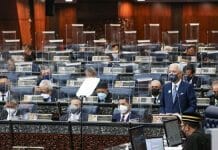German Chancellor Scholz started his first visit to China on November 4, and the accompanying German economic delegation also became the focus of international attention. At a time when there are some noises in Sino-German economic and trade relations, this visit undoubtedly conveys the importance that German industry and commerce place on the Chinese market. The business leaders who accompanied Scholz to China this time come from various industries, and the companies they represent have annual revenue of tens of billions of euros in China. These representative German executives visited China with Scholz, proving that any “centrifugal force” to alienate Sino-German economic and trade relations is inferior to the huge attraction brought by China’s economic development force.
“These German business leaders went to Beijing with Chancellor Scholz,” Handelsblatt recently announced the delegation of senior business leaders from 12 heavyweights of German companies that followed Scholz’s visit to China. Among them, Martin Brudermüller, CEO of German chemical giant BASF, who accompanied former German Chancellor Angela Merkel to visit China in 2018, is also on the list. BASF is also one of the largest German companies to invest in China recently. The company recently announced that it will invest 10 billion euros by 2030 to build a new “integrated base” in Zhanjiang, Guangdong province, China, the largest single investment ever made by BASF.
In addition to BASF, many German companies announced huge investment in China before their visit to China. During this visit to China, two CEOs from auto companies attracted much attention – Volkswagen CEO Oliver Bloom and BMW Group Chairman Oliver Zipzer. Volkswagen Group recently announced plans to invest around 2.4 billion euros in a joint venture with Chinese smart chip company Horizon. BMW also revealed that it will invest another 10 billion yuan to expand its battery project investment in China.
In addition to the above-mentioned German executives, the heads of Siemens, Wacker Chemie Group, Adidas, baby food maker Hipp, pharmaceutical company Bayer and heating technology company Geo Clima Design are also on the list. According to a previous report by the German Handelsblatt, more than 100 companies applied for enviable seats on government planes, and 12 were finally approved because business in China has never been more important than it is today. According to the analysis, although the number of German business leaders who followed Scholz’s visit to China is small, they are full of weight, including representatives from traditional German industries such as automobiles, chemicals, and manufacturing, as well as Germany’s BioNTech. ) and other emerging biotechnology companies, covering key areas and potential industries in Sino-German economic and trade.
The public data of the above 12 companies found that some companies will have a total revenue of tens of billions of euros in China or Greater China in 2021. Chemical giant BASF has one of the highest sales in China. According to BASF’s 2021 fiscal year annual report, the company’s sales to customers in Greater China are about 12 billion euros. Currently, Greater China is BASF’s second largest market in the world.
In fiscal 2021, Munich-based Wacker Chemie achieved record sales in China of 1.79 billion euros, an increase of 75 percent compared to 2020. Wacker Chemie Group said in its official press release that the substantial increase in performance is mainly due to the company’s strong product portfolio that perfectly fits China’s accelerating trend towards low-carbon development, as well as rising prices for most products.
While some people are advocating the “China-EU economic and trade decoupling theory”, some executives of German companies who visited China with Scholz this time publicly emphasized the importance of the economic and trade relations between the two countries. BASF CEO Bruder Miller said in an interview with German media recently that “the upcoming visit is a good signal of willingness to engage in dialogue with China.”
The energy crisis triggered by the conflict between Russia and Ukraine has already dimmed the outlook for Germany’s economy. The autumn economic forecast joint report released by mainstream German economic research institutions predicts that Germany will fall into recession in the second half of 2022 and early 2023, with annual GDP growth rates of 1.4% and -0.4% in 2022 and 2023, respectively. Since the beginning of this year, some German media and institutions have been clamouring for “decoupling” from China. Scholz made it clear that he supported globalization when he attended the Berlin Mechanical Engineering Summit on October 11 this year, and emphasized that “decoupling would be a completely wrong path” and that “trade with many countries, including China” must be carried out. Data shows that German companies are accelerating their investment in China. A report released by the American consulting firm Rhodium Group in September also showed that Germany is the largest source of investment for European companies in China, and the proportion of new investment in 2021 will be as high as 46%.
One of the key points of Scholz’s visit to China this time is the need to confirm with the Chinese side the focus of future economic and trade cooperation between the two countries. Automobiles, manufacturing and other fields are traditional areas of Sino-German economic and trade cooperation. Relevant German companies continue to expand their investment in China. This requires both China and Germany to provide a corresponding policy environment to consolidate cooperation in this area. Those advocating for “decoupling of China-Germany economy and trade” needs to answer a direct question: How can German companies make up for what they have lost in China?









